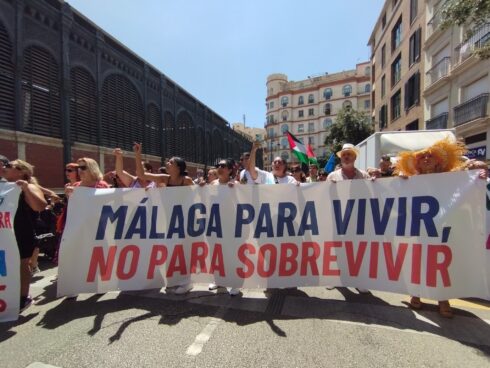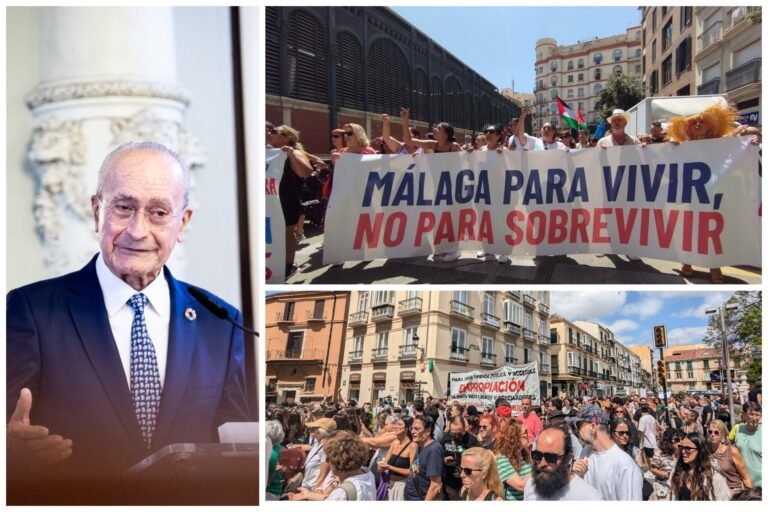Massive demonstrations against “excessive tourism” in Malaga have forced the mayor to speak out.
Saturday’s protest called for a cut in tourist rentals, which it says are driving up rents and reducing long-term rental options.
Protesters gathered at the Plaza de Merced just before midday, carrying banners that read “Malaga is to live, not to survive”.
La Merced, home to the Picasso Museum, is one of the worst-hit districts of Málaga, with 68.91% of the housing stock used as tourist apartments.
Read more: Thousands of locals take to the streets of Malaga in latest protest against ‘excessive’ tourism in Spain
 Protesters gathered at the Plaza de Merced just before midday, carrying banners that read “Malaga is for living, not for surviving”.
Protesters gathered at the Plaza de Merced just before midday, carrying banners that read “Malaga is for living, not for surviving”.
Mayor Francisco de la Torre responded by acknowledging Malaga’s housing problem, saying it was “driven by the city’s success”.
“Housing supply is lagging behind in meeting the growing demand, not just in Malaga but across Spain,” he explained.
He called for a national strategy involving both public agencies and private developers to boost housing construction.
The mayor added that more than 5,300 homes had been built in the city during his tenure, but acknowledged that “much more needs to be done.”
“We can’t do it alone,” he declared, outlining current projects that include the development of 1,168 homes in the Z and Cortijo Merino neighborhoods in tandem with private sector efforts.
READ MORE: British tourists labelled ‘plague’ in Spain: Malaga residents say city ‘smells of ghis and beer at 11am’ ahead of mass protests this weekend
 Locals say the proliferation of Airbnb has caused the city to lose its identity and “soul”, with the city centre virtually empty in the off-season when no Airbnb or Booking.com apartments are booked.
Locals say the proliferation of Airbnb has caused the city to lose its identity and “soul”, with the city centre virtually empty in the off-season when no Airbnb or Booking.com apartments are booked.
A shocking recent statistic shows that in Malaga’s historic centre, almost half of the apartments (42.68%) are catered for by tourists.
Not only is this phenomenon driving local residents out of their towns, it is also severely reducing the rental housing stock, contributing to a nationwide housing crisis.
In the province of Málaga, there were 41,038 registered tourist apartments as of February 2024, a 16% increase in this type of housing over the past year.
Locals say this has caused the town to lose its identity and “soul”, leaving the town centre virtually empty in the off-season when Airbnb and Booking.com apartments are not booked.
A recent change in city hall policy would require any new apartments rented to tourists to have a separate entrance.
Meanwhile, restrictions are planned for future areas where Airbnb is deemed to have an excessive presence.
But de la Torre was quick to lay the blame on recent central government changes to housing law which have made landlords hesitant to rent out properties long-term.
“The current law does not encourage rentals, it discourages and intimidates landlords, pushing them into more profitable tourist rentals,” Mr de la Torre said.
He called on the government to change the law to give landlords more legal protections and to stimulate social housing and long-term rental housing through tax incentives.
He also called on developers to focus not only on profitable market-rate housing but also on socially responsible projects that include more affordable housing options.


